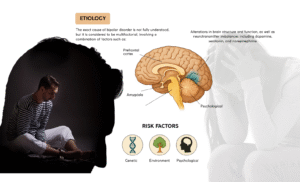Positive Behaviour Support (PBS) is changing the way we support people in disability housing—and for the better.
Rather than just responding to behaviors when they happen, PBS helps us understand why Behaviour occur in the first place. This approach builds respectful, safe, and supportive environments where people can truly thrive—not just get by.
🤝 What is Positive Behavior Support?
PBS is a proactive, evidence-based approach that focuses on the person behind the behaviour. It moves away from outdated methods of managing or punishing behaviours and instead aims to understand what’s causing them.
By identifying the social, emotional, and environmental factors influencing someone’s behavior, we can better support their needs and improve their quality of life.
What Does Good PBS Look Like?
A strong PBS plan is built around a functional behaviour assessment. This means looking at what’s happening in someone’s environment, routine, or communication that might be triggering the behaviour.
A good plan is created in consultation with the person, their family, support team, and carers. Everyone’s input matters—it’s about working together.
🚫 Reducing Restrictive Practices
In many cases, PBS can help reduce or eliminate restrictive practices, which can cause long-term harm. Studies show that PBS can reduce challenging behaviours by up to 80%—and that means less reliance on things like chemical or mechanical restraints.
Here’s how PBS helps:
- Builds communication skills
- Removes or reduces triggers
- Teaches coping strategies
- Supports collaboration with family and carers
Why PBS Matters
Using PBS means focusing on the person, not just their behaviour. It encourages safer, more respectful housing environments and leads to better outcomes for everyone.
For example, in one case, introducing PBS led to a 66% drop in the use of chemical restraints. In another, mechanical restraints were eliminated altogether for an adult with cerebral palsy.
Getting Started with PBS
To implement PBS, you’ll need a qualified PBS practitioner who can do a behaviour assessment and develop a personalised support plan. These plans are regularly reviewed and updated as the person’s needs and goals change.
You can access funding for PBS through your NDIS Capacity Building Budget, specifically under the “Improved Relationships” or “Behaviour Support” category in PACE plans.
The Bigger Picture with SDH
PBS is not just a method—it’s a mindset shift that supports individuals to live their best lives.
At SDH, we’re committed to creating inclusive living environments where every person is respected, supported, and empowered.
If you’re ready to explore how PBS can enhance your disability housing services, SDH is here to help. Let’s create environments where residents don’t just live—they thrive.
Looking for a provider near you?
Use the official NDIS Provider Finder to locate registered services in your area.
USE THIS LINK TO SEARCH FOR A PROVIDER NEAR YOU : Provider finder | NDIS








